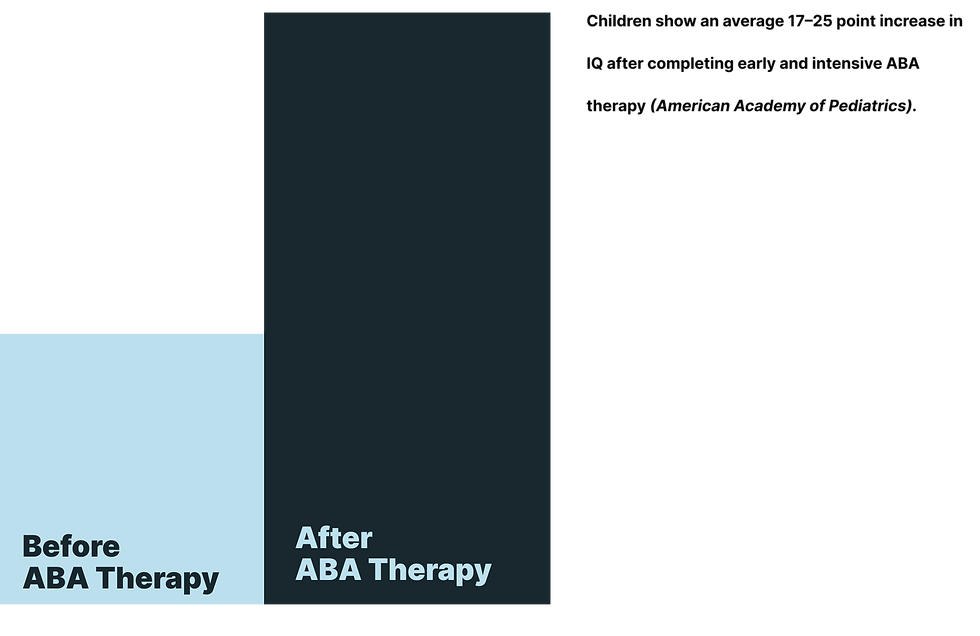Outcomes at
Anoka Autism Center
Immediate and Long-Term Benefits of ABA Therapy
ABA therapy provides measurable improvements in your child’s development, often within the first few months. Its individualized approach creates a foundation for lasting progress while offering immediate relief for common challenges.
0–3 Months
Immediate Improvements
-
Communication Gains: Many children begin using gestures, pointing, or basic verbal expressions to communicate needs within the first few weeks of therapy.
-
Behavioral Adjustments: Reduction in tantrums and other challenging behaviors as children learn new coping strategies.
-
Daily Routines: Increased cooperation during daily activities such as eating, bedtime, and getting dressed.

6 Months and Beyond
Long-Term Success
-
Independence: Mastery of self-care skills like toileting, dressing, and personal hygiene.
-
Advanced Communication: Holding conversations, expressing emotions, and understanding others’ perspectives.
-
Social Integration: Participating in group activities, building friendships, and thriving in structured environments like school.

3-6 Months
Short-Term Milestone
-
Language Development: Expanding vocabulary and forming simple sentences.
-
Social Interactions: Initiating play with peers, making eye contact, and responding to greetings.
-
Skill Acquisition: Improved ability to follow instructions, complete tasks, and transition between activities.


Immediate Results

Long-Term Benefits

Family Outcomes
Our mission
is to help children with autism and their families shine by unlocking their unique potential. Through ABA therapy, a proven and evidence-based approach, we create meaningful changes in communication, independence, and lifelong development. The outcomes speak for themselves: children gain essential skills that form the foundation for brighter, more independent futures.
With care and dedication, we’re here to support your child on a journey toward a life full of possibilities.

Adoptive Behavior Gains and Levels of Improvements
ABA therapy fosters significant progress in adaptive behaviors, which are essential for daily living and social functioning.
Adaptive Behavior Gains
Clinically Significant Progress: Research indicates that children with lower adaptive baselines make meaningful gains within 24 months of ABA therapy.
Adaptive Behavior Composite (ABC) Scores: Children often see a 4.46-point increase in ABC scores for every 12 months of therapy. These gains represent real-world improvements in communication, self-care, and daily living skills.
Consistency Matters: Regular engagement in ABA therapy maximizes progress, even for children with initially low adaptive levels.
Adaptive Level Improvements
Enhanced intellectual functioning, enabling problem-solving and critical thinking.
Development of language skills, including both expressive and receptive communication.
Acquisition of daily living skills, such as hygiene, meal preparation, and household tasks.
Increased social functioning, helping children build meaningful relationships and navigate social settings.
Improved Family and Parent Outcomes
ABA therapy doesn’t just benefit the child—it also transforms family dynamics and reduces parental stress. Families often experience:
-
Reduced Stress: ABA therapy equips families with strategies to manage challenging behaviors, leading to a 63% reduction in stress levels within six months (Autism Research).
-
Improved Routines: Structured interventions make daily activities smoother and less chaotic.
-
Empowerment: Parents gain confidence in supporting their child’s progress through therapy techniques.
-
Family Bonding: Reduced behavioral challenges allow for more positive interactions and quality time.


Lifelong Developmental Impacts in Adulthood
ABA therapy’s benefits extend well into adulthood, shaping a child’s future trajectory in positive and meaningful ways.
-
Cognitive Growth: ABA-based interventions improve problem-solving and critical thinking.
-
Language Proficiency: Advances in communication skills enhance personal and professional opportunities.
-
Daily Independence: Improved functional abilities foster greater autonomy in adulthood.
-
Social Success: Enhanced social skills support deeper connections and improved quality of life.

Research highlights the following impacts:
70%
of children show significant language improvements, aiding lifelong communication (Journal of Autism and Developmental Disorders).
Long-term benefits include higher rates of employment and community integration.

5x
Adults who received ABA therapy are
more likely to live independently or semi-independently.
2-3x
higher developmental milestone success for children receiving ABA therapy compared to those without intervention.

Enhanced emotional regulation, helping children handle frustrations and adapt to changes with greater ease.
.png)